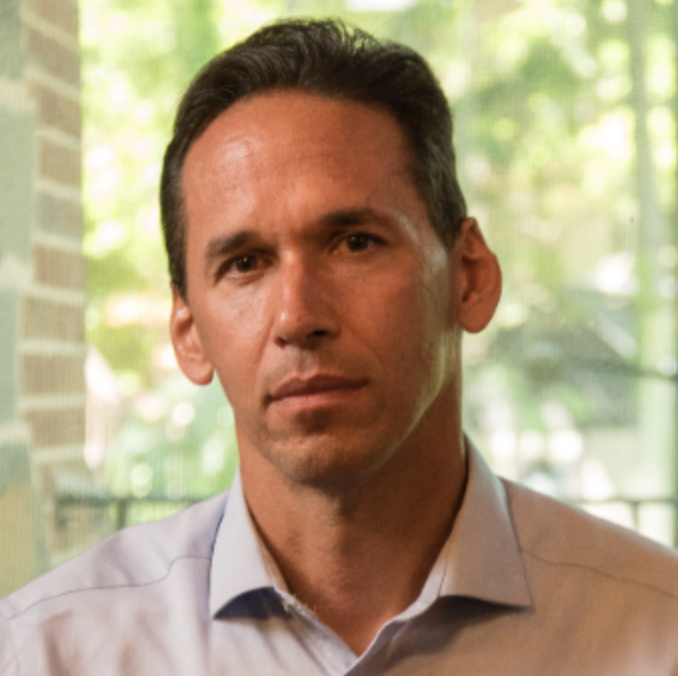Georgetown government and law professor Marc Howard (L ’12) has worked on several programs related to criminal justice reform since he founded the Georgetown University Prisons and Justice Initiative (PJI).
Howard, who is the director of PJI, spoke on Aug. 25 on CNN’s morning news segment. He shared his expert opinion on conviction integrity units (CIUs) that attempt to exonerate wrongfully convicted prisoners. One such unit, the CIU in Queens, N.Y., has successfully exonerated over 100 incarcerated people, many of whom were convicted on falsified charges.
However, Howard said that most CIUs do not produce these kinds of results and are plagued by systemic issues such as bias and inefficiency.
“What’s troubling is that they give this false pretense that there’s a serious review taking place, and for the people who just get ignored. And I’m involved in a case in Chester County, Pennsylvania, where we, for 16 months, have been trying to get them to look at a case they wouldn’t even respond and acknowledge receipt of our case. And the evidence is sitting there ready to be tested. It’s been there for 24 years, and we can’t get a response,” he said on CNN.
At Georgetown, Howard teaches the popular course “Prisons and Punishment,” which critically examines issues at the heart of the U.S.’s criminal justice system, including race, capital punishment and wrongful convictions.

When Howard was 17, his childhood friend, Marty Tankleff, was wrongfully convicted of murdering his parents. Tankleff ultimately spent 18 years in prison before he was exonerated. Howard said that this experience remained with him and was the inspiration behind PJI.
“My friendship with Marty and witnessing what he endured pushed me to explore all avenues to challenge the injustices in our criminal legal system,” Howard wrote to The Hoya. “I established PJI in 2016 as a part of that mission.”
Howard founded PJI with the goal of educating and involving the Georgetown community on issues pertaining to mass incarceration and criminal justice reform. PJI has since expanded to include three central outreach branches: prison education programming, prison reentry programs that help newly released prisoners adjust to their careers, and the Making an Exoneree program, an intensive course in which undergraduate students reinvestigate wrongful convictions.
Georgetown faculty members coordinate the curriculum of PJI’s prison education programming, which services incarcerated people at the D.C. Jail and the Patuxent Institution in Md. The classes offered mirror Georgetown’s main campus courses. At Patuxent, where incarcerated people typically stay for years in contrast with the shorter-term D.C. Jail, participants in the program work to obtain a Bachelor of Liberal Arts degree from Georgetown.
Howard said that prison education programming positively impacts its participants’ mental health while they are incarcerated.
“Education can be mentally liberating, even while a person is confined in prison,” Howard wrote to The Hoya. Accessing higher education while incarcerated opens doors for continued education or new job opportunities after release, and makes people more engaged citizens, stronger role models, and positive leaders.”
PJI’s reentry program partners with D.C.’s local government and seeks to equip incarcerated people who are transitioning back to society with skill sets to succeed in professional careers. This program features the Pivot Program, which offers a certificate in Business and Entrepreneurship from the Georgetown McDonough School of Business, and the Mayor’s Office on Returning Citizen Affairs (MORCA)-Georgetown Paralegal Program, through which participants earn a certificate of Paralegal Studies. Fellows in both programs have the opportunity to intern and interview with top employers.
“These programs similarly empower formerly incarcerated participants and create pathways to rewarding and stable careers,” Howard wrote. “We have seen so many graduates of these two programs go on to succeed at a wide variety of companies and nonprofits, as well as start their own businesses.”
Through the Making an Exoneree program, students select a client from PJI’s database and thoroughly examine their court documents and records. This class culminates in the students curating a short documentary through which they advocate for their clients and bring attention to their cause. Howard said he is especially proud of the results of this program, which he co-conducts with Tankleff.
“The Making An Exoneree program has had a hand in seven prison releases of wrongfully convicted people. Seeing those folks walk out of prison and knowing that Making An Exoneree contributed to their freedom has been one of the most rewarding experiences of my life,” Howard wrote.
By appearing on CNN, Howard was able to bring some publicity to PJI’s mission. He met CNN anchor Poppy Harlow, who was working on a story about CIUs, at a Time100 event last spring. The two privately discussed Making an Exoneree and the increasing problem of wrongful convictions before the broadcast, according to Howard.
“We had some great discussions for that story, which led to the live segment,” Howard said.
On CNN, Howard emphasized that ensuring a fair review to prisoners for exoneration would require an independent and autonomous CIU, staffed with unbiased representatives who are not affiliated with prosecutors’ offices. Howard said this was a necessity partly because of prosecution offices’ reluctance to admit they made faulty convictions.
“I would like to see conviction integrity units that have the leadership and involvement of people outside of a prosecutor’s office – such as public defenders, advocates and outside experts who can bring a truly objective look at cases,” Howard said. “This would require buy-in and resources at the local level and a shared commitment to uncovering difficult truths and correcting past mistakes and misconduct.”
Howard added that some units, such as the aforementioned Queens CIU, set a strong example for other conviction review units to follow.
“There are some conviction integrity units that are doing difficult and life-changing work to exonerate wrongfully convicted people,” Howard said. “I hope that level of success will become the norm rather than the exception.”
Georgetown students who work closely with Howard all say that he serves as an inspiring mentor to them in their studies and their professional careers.
Caity Baskin (CAS ’23), Howard’s assistant and a General Project Coordinator at PJI, first joined the program after meeting Howard on a prison visit that was part of her internship. Baskin said this visit was eye-opening and led her to become more and more involved in the Initiative’s work.
“Most people who enter this line of work will agree: Once you see the injustices of the criminal legal system with your own eyes, it’s impossible to turn your back,” Baskin wrote to The Hoya.
Baskin said that working with Howard kept her both busy and inspired.
“He works tirelessly to expand his programs and broaden their reach so that an ever-growing number of incarcerated people can receive the help they deserve,” Baskin wrote.
Annie Kane (CAS ’24) is the PJI’s Student Communications Intern and closely worked with a CIU through Making An Exoneree.
(Full disclosure: Annie Kane is currently the Graduate Relations Director on The Hoya’s Board of Directors).
Kane, who is currently taking Howard’s Prisons and Punishment class, said that honest people must run CIUs to truly exonerate innocent prisoners.
“CIUs only work if those running them are committed to carrying out fair investigations and achieving true justice,” Kane told The Hoya. “My hope is that a growing number of CIU’s are staffed with people who understand the landscape of wrongful convictions and are dedicated to bringing people home.”
Ellie Sims (CAS ‘25) has served as PJI’s Student Operations Associate since she was a freshman. She is extensively involved in PJI’s efforts, administering the prison education and reentry programs and conducting case research for Making An Exoneree. Sims, who plans on embarking on a career in justice, said that she wanted to join PJI since she went through the college admissions process.
“When I was applying for college, I wanted to go to a school that did the work that they preached,” Sims wrote to The Hoya. “When I found PJI, particularly the prison education program, I knew that I wanted to apply to Georgetown.”
Sims added that Howard has been a strong mentor for her as she defines her career goals, potentially in the areas of police and prosecutorial misconduct, juvenile restoration, and post-conviction relief.
“I’ve really enjoyed growing educationally, professionally, and philosophically from his leadership,” Sims wrote.
Anthony Arend (SFS ’80), the Chair of Georgetown’s Department of Government, said that Howard exemplifies Georgetown’s values through his work at PJI.
“Dedicated to cura personalis, Professor Howard is the embodiment of Georgetown’s commitment to being people for others,” Arend wrote to The Hoya. “Marc and his entire team are truly changing the world — one person at a time.”
Howard said that appearing on CNN provided him with the opportunity to raise awareness about wrongful convictions.
“It was a great opportunity to have such a large platform to speak about an often overlooked issue,” Howard said. “I hope it will lead to more discussions about how our criminal legal system can pursue justice for wrongfully convicted people.”





















